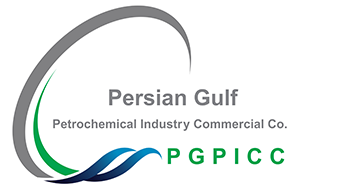
A look into Iran’s PGPIC after sanctions hit the holding

back in June, the United States hit PGPIC with economic sanctions due to what they claimed to be tied with the country’s Revolutionary Guards (IRGC), however, the move, in fact, was aimed to choke off financing to the country’s largest and most profitable petrochemical group.
The PGPIC group holds 40 percent of Iran’s total petrochemical production capacity and is responsible for nearly 50 percent of the country’s petrochemical exports.
After the imposition of the U.S. sanctions, many thought the impact of the sanctions to be very significant on the performance of the holding and consequently on the country’s economy, however contrary to expectations, PGPIC is continuing to thrive, and according to the holding’s Managing Director Jafar Rabiei its production and exports haven’t been affected greatly by the U.S. sanctions.
To take a more detailed look at PGPIC’s current condition, Tehran Times conducted an interview with Pejman Alidousti, which is a public relations officer and economic assessment consultant at PGPIC.
What follows is a summary of Alidousti’s comments on the current situation of this company and the impact of U.S. sanctions.
The U.S. sanctions on PGPIC
The main issue which we should consider is that we were sanctioned even before the U.S. officially declared sanctions on PGPIC in June.
For doing any business activity, there are four basic factors which must be present, first, you need to produce and supply your products or services; you also need to have costumers which are willing to be provided with your products. There is then the issue of logistics and transportation which is the linkage between the previous factors and finally the financial factor which is one of the most important players in any business transaction.
So, when the country’s banking system was sanctioned even before the imposition of sanctions on PGPIC, it was, in fact, an imposition also on all other entities in the country which needed international financial exchanges.
That means we have been dealing with sanctions far before they were officially declared.
Therefore, in facing a situation like this [mentioning the U.S. sanctions], there are two approaches, one is to sit on your hands and wait for the sanctions to be removed and the other is to try to find ways to withstand the pressure which is imposed by the sanctions.
The impacts and solutions
I can confidently say that since the beginning of the sanctions, we have been constantly seeking new ways and consequently finding new solutions for the problems inflicted by the sanctions. And I can assure you that the cycle of business in the PGPIC has not been stopped, and we are still producing, selling, and transporting our products and being paid for them.
We are currently exporting over $3 billion worth of commodities only to China every year, and there are other customers who haven’t abandoned Iran as a profitable source for supplying their petrochemical needs.
Since last year, PGPIC has climbed three places to the 35th position in ICIS Top 100 Chemical Companies for 2019, despite the U.S. sanctions.
To say that sanctions are not impacting our industry doesn’t mean that they are completely ineffective, no, the sanctions have their consequences but we also have our solutions which relief the impact of these consequences or even completely eliminate them.
Market reactions to sanction
Obviously at first when a new sanction is declared, a shock is inflicted to the domestic and foreign markets and the markets and businesses will obviously be affected by the skepticism which is followed. However, this is a short-term impact and after a period, say for instance two months, the markets will go back to their normal routines.
So, following the announcement of a new round of sanctions, after the initial shock is passed, two main trends could be expected from the economic perspective.
The reaction of the market to the post-sanction situation can be explained using two economical notions namely “Rational Expectations” and “Adaptive Expectations” which can be clearly applied in the current situation of U.S. sanctioning Iranian entities.
In Rational Expectations, foreign customers of PGPIC could be expected to adhere to the sanctions and not to do business with Iran anymore. The “Adaptive Expectations” theory, on the other hand, believes that after an entity is placed in a difficult situation, customers will easily adapt to the situation driven by the opportunity for negotiation and striking better deals.
Sometimes a harsh situation [the sanctions] can drive business partners to be more motivated to take advantage of the situation and therefore they will become solution-finders or even solution-makers themselves, as it is the case for PGPIC.
Out trade partners, like China and India with which 85 percent of our trade is taking place, are now providing solutions for keeping their trade ties with us.
I should note that what was said doesn’t mean that we are disregarding our interests only to keep our customers. To put it in a nutshell, sanctions are playing the role of a motivator for some of our trade partners to seek negotiation and better deals and considering the situation we will do what is best for us, too.
Future vision
We should not forget that petrochemical products are among the world’s top industrial requirements and Iran is one of the major suppliers of such products in the region and even in the world, so it would be hard for our customers in the region to replace us with other sources.
Therefore, I do not think that this framework would be interrupted in the future and Iran will remain a major provider of petrochemicals on a global scale.
In this regard, since the beginning of the current Iranian calendar year (March 20), we have been following new plans for expansion of our destination markets.
Iraq, Syria and other countries in the region are some of our new markets which we are focusing on. There are also markets in the CIS region, Asia and Europe which I can’t mention their names because of security issues.
We are becoming stronger in the sanctions era and hopefully in the near future, when the sanctions are removed, we will grow even bigger and stronger and that is our vision for the future.


Newmont nets $100M payment related Akyem mine sale

First Quantum scores $1B streaming deal with Royal Gold

Caterpillar sees US tariff hit of up to $1.5 billion this year

Copper price collapses by 20% as US excludes refined metal from tariffs

Gold price rebounds nearly 2% on US payrolls data

St Augustine PFS confirms ‘world-class’ potential of Kingking project with $4.2B value

B2Gold gets Mali nod to start underground mining at Fekola

Copper price posts second weekly drop after Trump’s tariff surprise

Goldman told clients to go long copper a day before price plunge

NextSource soars on Mitsubishi Chemical offtake deal

Copper price slips as unwinding of tariff trade boosts LME stockpiles

SAIL Bhilai Steel relies on Danieli proprietary technology to expand plate mill portfolio to higher steel grades

Alba Discloses its Financial Results for the Second Quarter and H1 of 2025

Australia weighs price floor for critical minerals, boosting rare earth miners

Australia pledges $87M to rescue Trafigura’s Nyrstar smelters in critical minerals push

Fresnillo lifts gold forecast on strong first-half surge

Why did copper escape US tariffs when aluminum did not?

Fortuna rises on improved resource estimate for Senegal gold project

Caterpillar sees US tariff hit of up to $1.5 billion this year

NextSource soars on Mitsubishi Chemical offtake deal

Copper price slips as unwinding of tariff trade boosts LME stockpiles

SAIL Bhilai Steel relies on Danieli proprietary technology to expand plate mill portfolio to higher steel grades

Alba Discloses its Financial Results for the Second Quarter and H1 of 2025

Australia weighs price floor for critical minerals, boosting rare earth miners

Australia pledges $87M to rescue Trafigura’s Nyrstar smelters in critical minerals push

Fresnillo lifts gold forecast on strong first-half surge

Why did copper escape US tariffs when aluminum did not?

Fortuna rises on improved resource estimate for Senegal gold project














